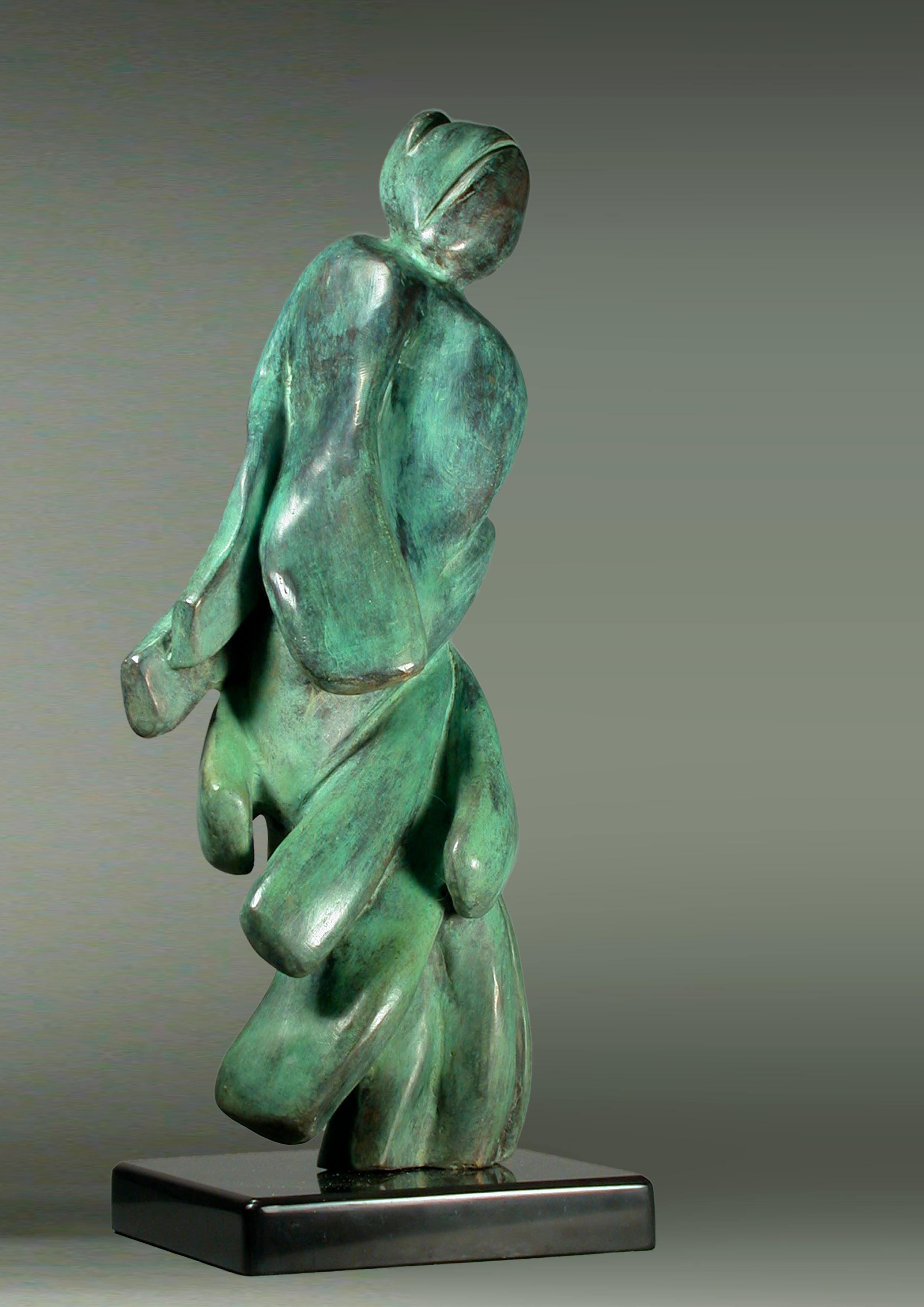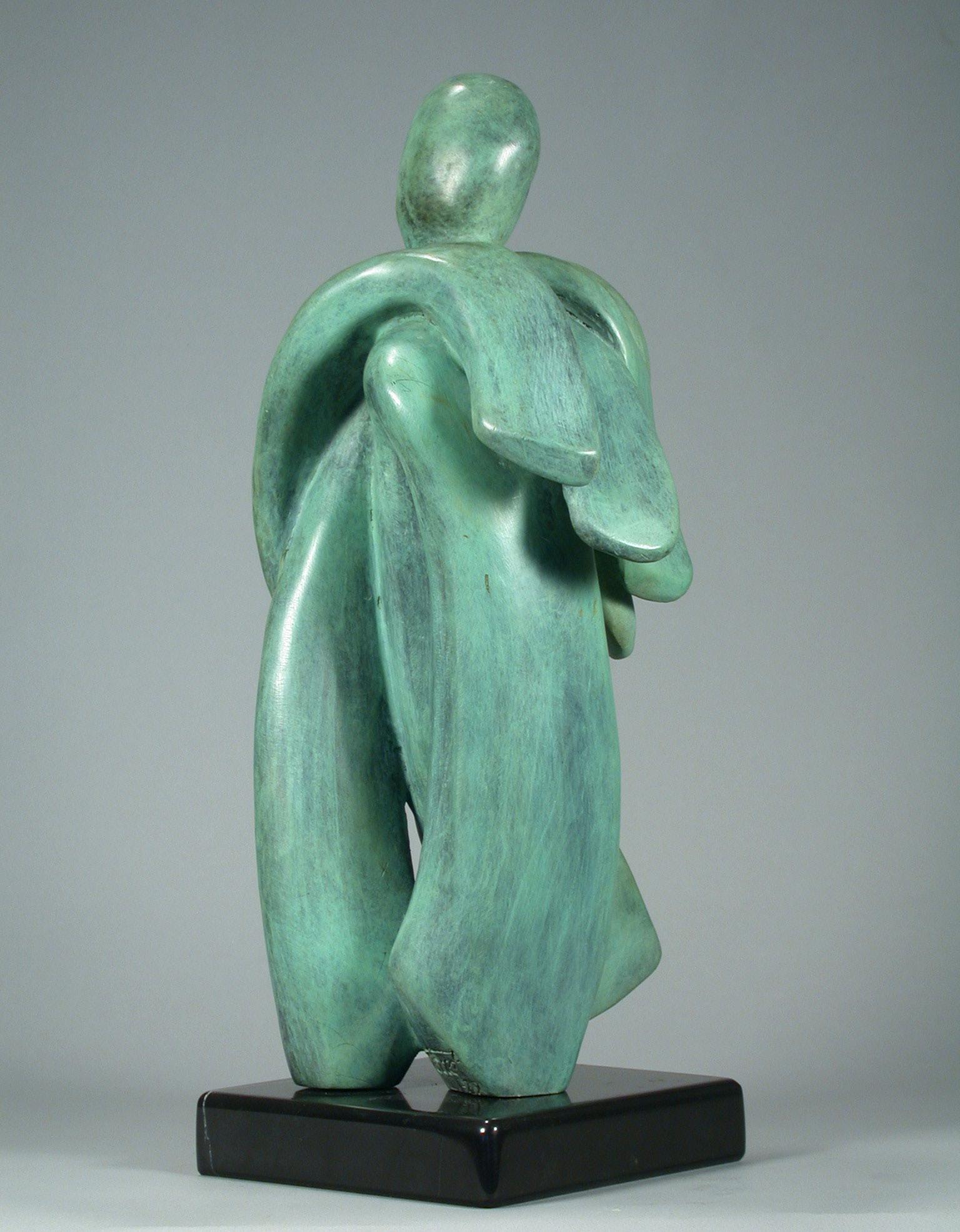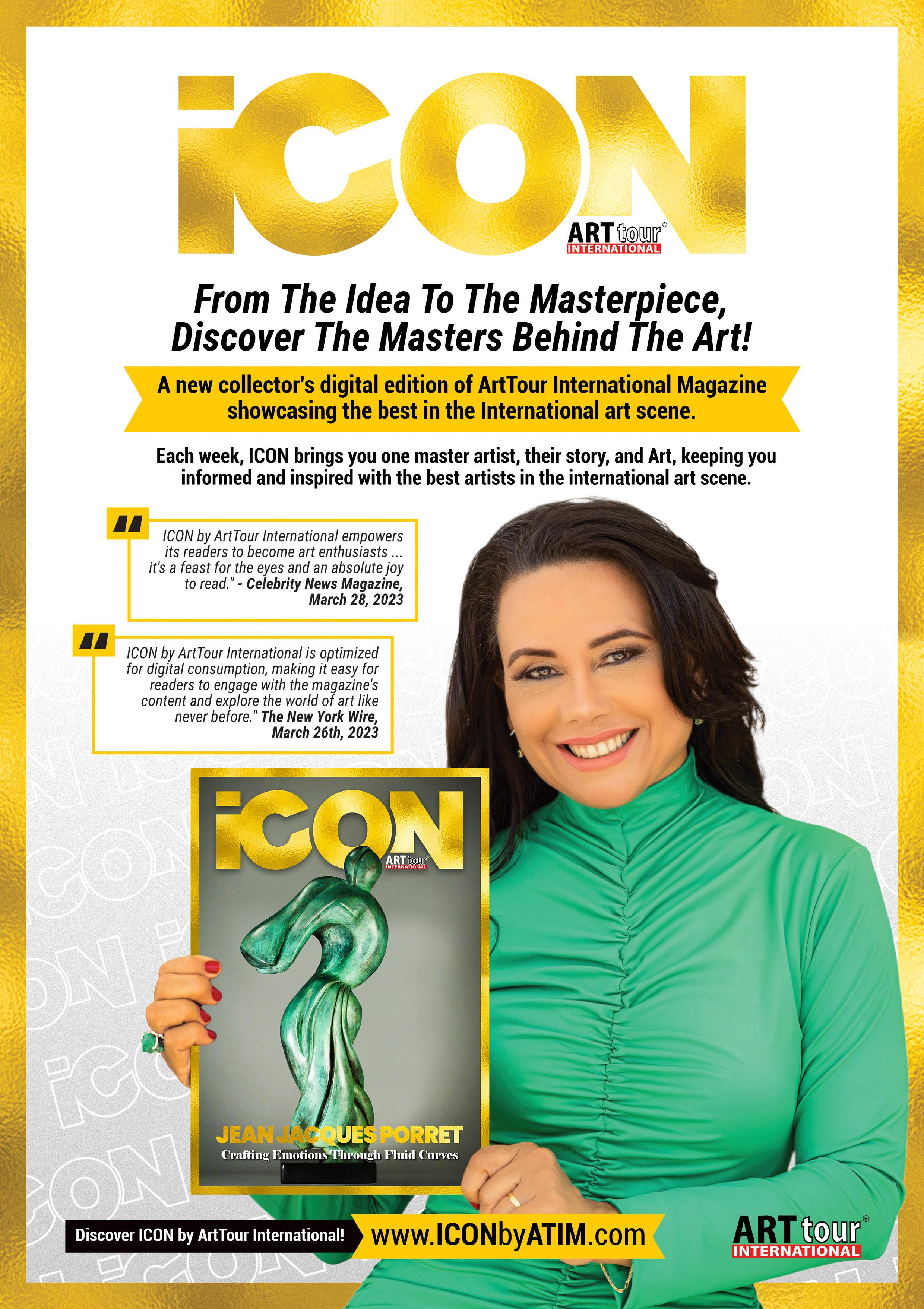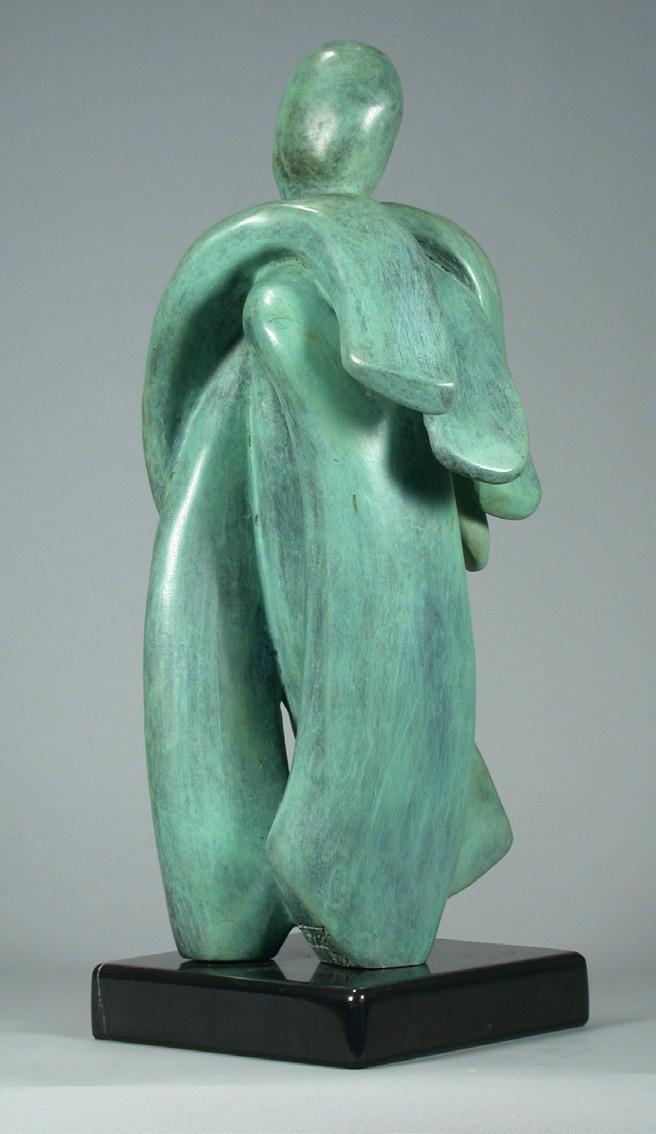
5 minute read
Exploring Jean Jacques Porret’s Artworks
Amidst the technological and screencentric world we live in, Jean Jacques aims to remind us of the intricacy and beauty of nature. His sculptures depict the fluidity and motion of life, highlighting the continuous flow of energy and transformation that envelops us. Whether we are happy or sad, in love or grieving, Jean Jacques’ sculptures encourage us to connect with our feelings and the environment.
Jean Jacques Porret’s sculpting process begins with sketches, showcasing his artistic talent. He uses his imagination to design each unique sculpture, characterized by fluid curves and delicate balance.
Advertisement
| By Viviana Puello
Discover the artistry of Jean Jacques Porret, whose sculptures utilize fluid curves to capture the emotions and ideas that unite us. His pieces are distinctive, blending abstract and figurative elements in a compelling and thought-provoking manner. Through examining the intricate curves and balance of Porret’s works, we can reveal the common humanity and shared experiences they convey.
Jean Jacques Porret finds inspiration in the world around us, drawing from the beauty of nature, the movement of water, and the interplay of light and shadow to create his distinctive sculptures. In addition to the external world, he is deeply influenced by human emotions, experiences, and ideas.
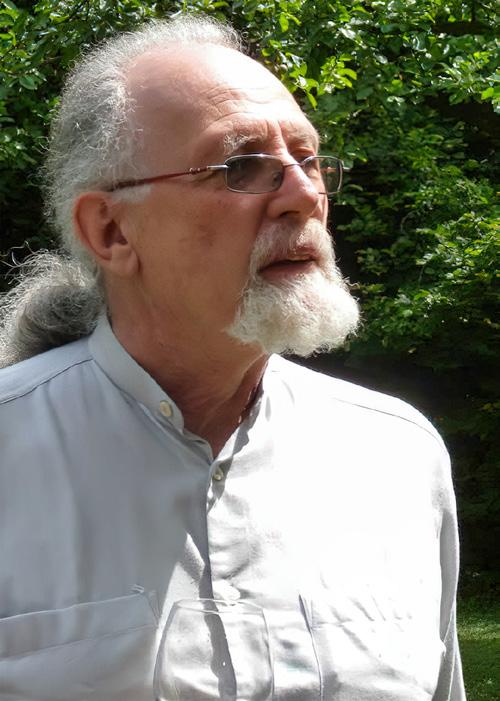
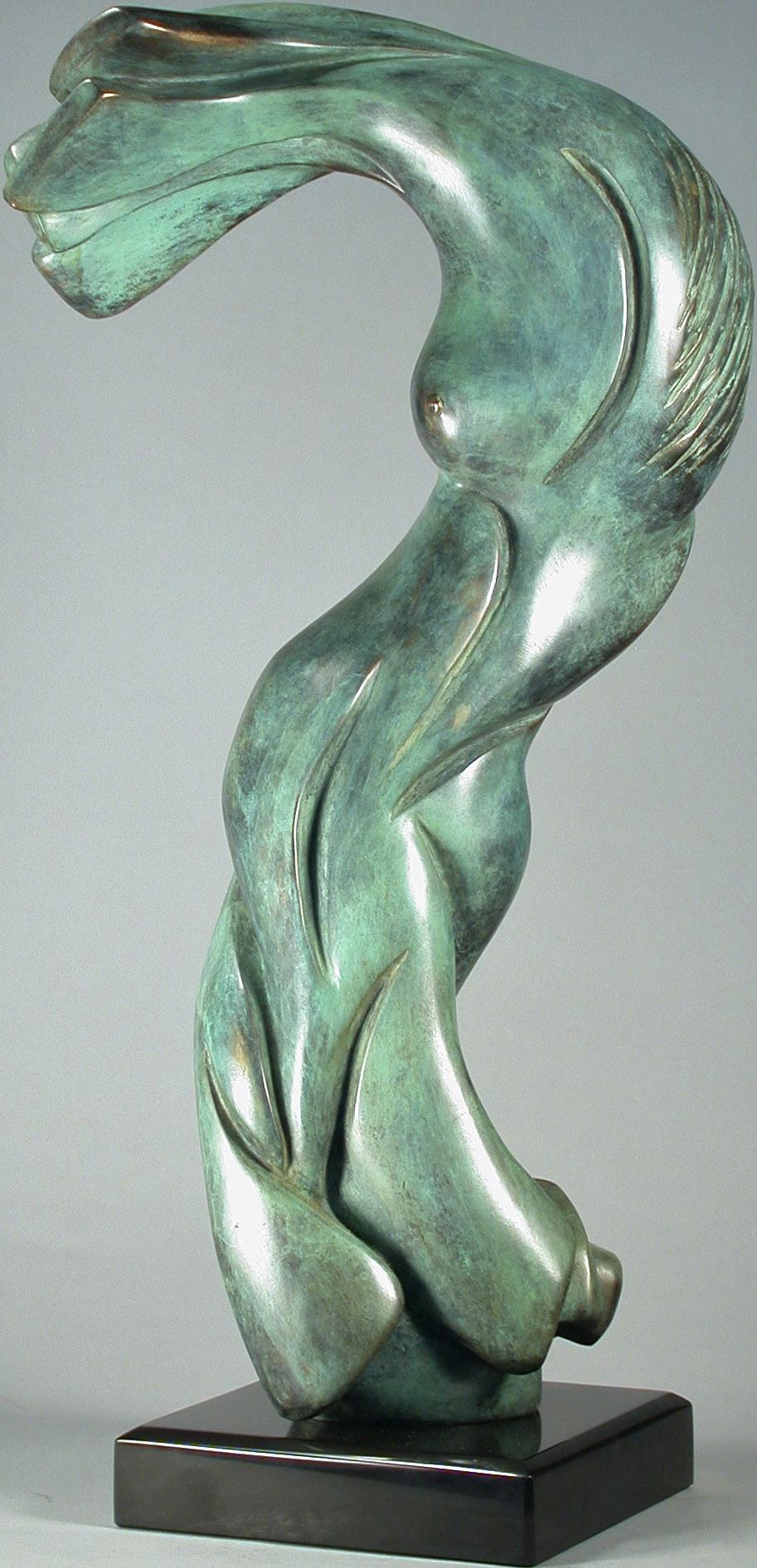
Jean Jacques views art as more than just aesthetically pleasing creations. He believes it is a means of connecting with others profoundly and sharing aspects of the human experience. His sculptures reflect his own emotions and ideas, aiming to resonate with others and spark contemplation and conversation.
Once he finalizes a design, Porret molds the sculpture in clay, ensuring it remains true to his original vision. It’s worth noting that he considers the piece unfinished at this stage, as additional elements such as color, patina, base material, and size still need to be decided upon.
These finishing touches are added after the molding, waxing, and casting process—Porret’s attention to detail results in stunning works of art that stand out with their unique style.
The level of attention and detail present in each sculpture created by Porret is remarkable. So it’s not surprising that each piece’s recognizable form and innate humanity are impossible to overlook. Through his creative process, Porret skillfully captures humanity’s shared emotions and ideas in his sculptures, creating a delightful experience for anyone who has the pleasure of beholding them.
Achieving a sense of “rightness”, even in the most uncertain circumstances, is the motivating concept behind my sculpture. The work is figurative but is not about the figure. I am an expressionist, as I am more interested in communicating an abstract feeling or idea than an actual image. I use recognizable forms to evoke emotions and stimulate sensations.
Porret’s sculptures go beyond the human form and are not solely focused on the figure. Instead, they convey the emotions and ideas we all have in common using each piece’s fluid curves and delicate balance. These abstract forms are impossible to miss, and even those who don’t typically appreciate abstract art will find themselves fascinated by Porret’s work.
The sculptures are often large in scale, with a sense of movement and balance that is truly awe-inspiring. In addition, Porret conveys a sense of weightlessness in his pieces, even when made from heavy materials such as bronze. A testament to his skill as a sculptor and his ability to bring out the best in the materials he works with.

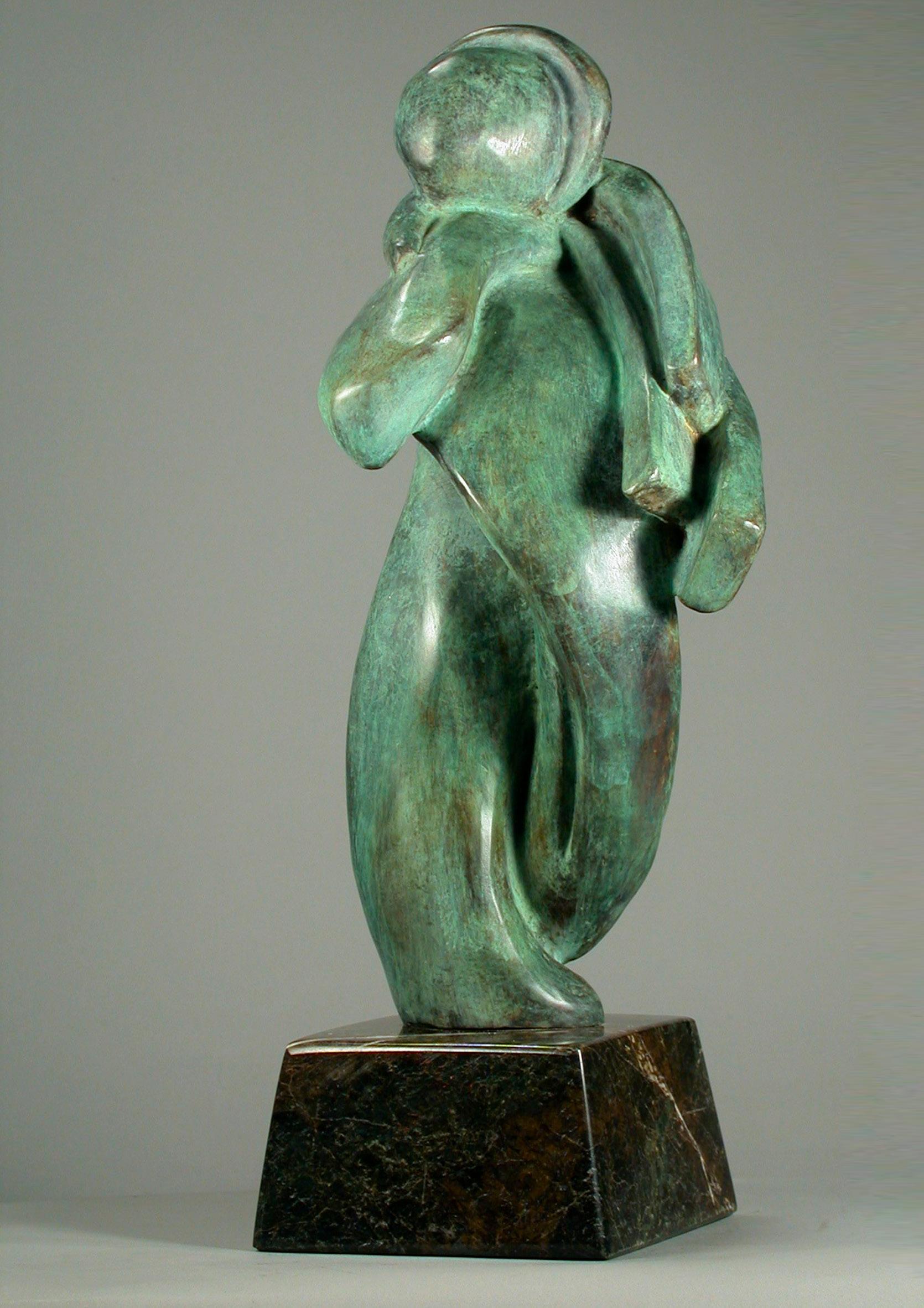
One of the most striking aspects of Porret’s work is how recognizable forms are often hidden within abstract shapes. They are subtle and usually easy to miss at first glance, but they become impossible to ignore once you see them. This interplay between abstract form and recognizable shape makes Porret’s sculptures so fascinating to behold.
Jean Jacques Porret is an expressionist artist who aims to convey abstract feelings and ideas through his artwork.

Rather than creating a replica of a subject, he focuses on communicating emotions and concepts. He achieves this by using forms familiar to our Human nature., which capture the viewer’s attention and invites them to connect with the emotions embodied in his art.
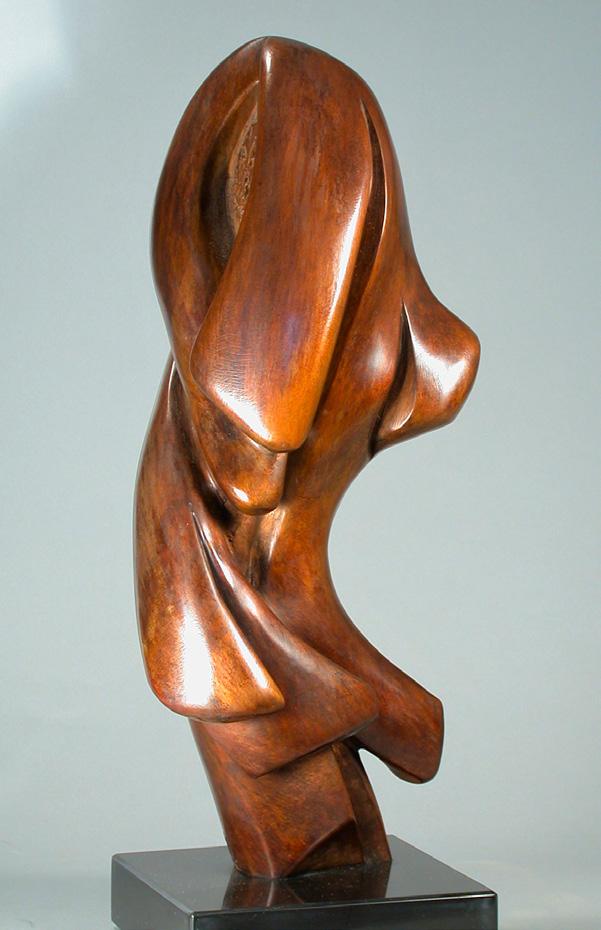
For Porret, achieving a sense of “rightness” is central to his sculpture, even in the most uncertain of circumstances. He creates sculptures that capture the impermanence of human existence and the idea that our lives are constantly in motion.
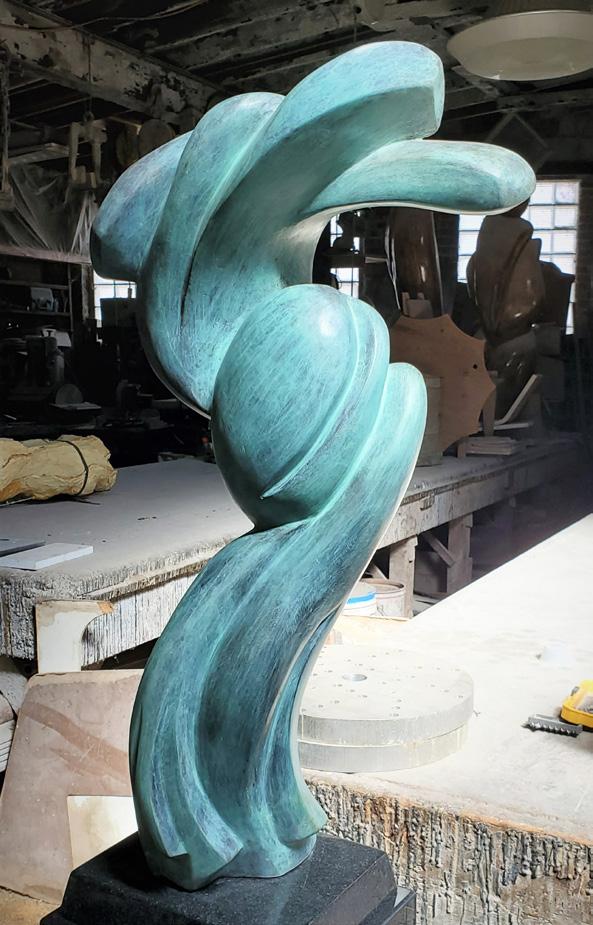
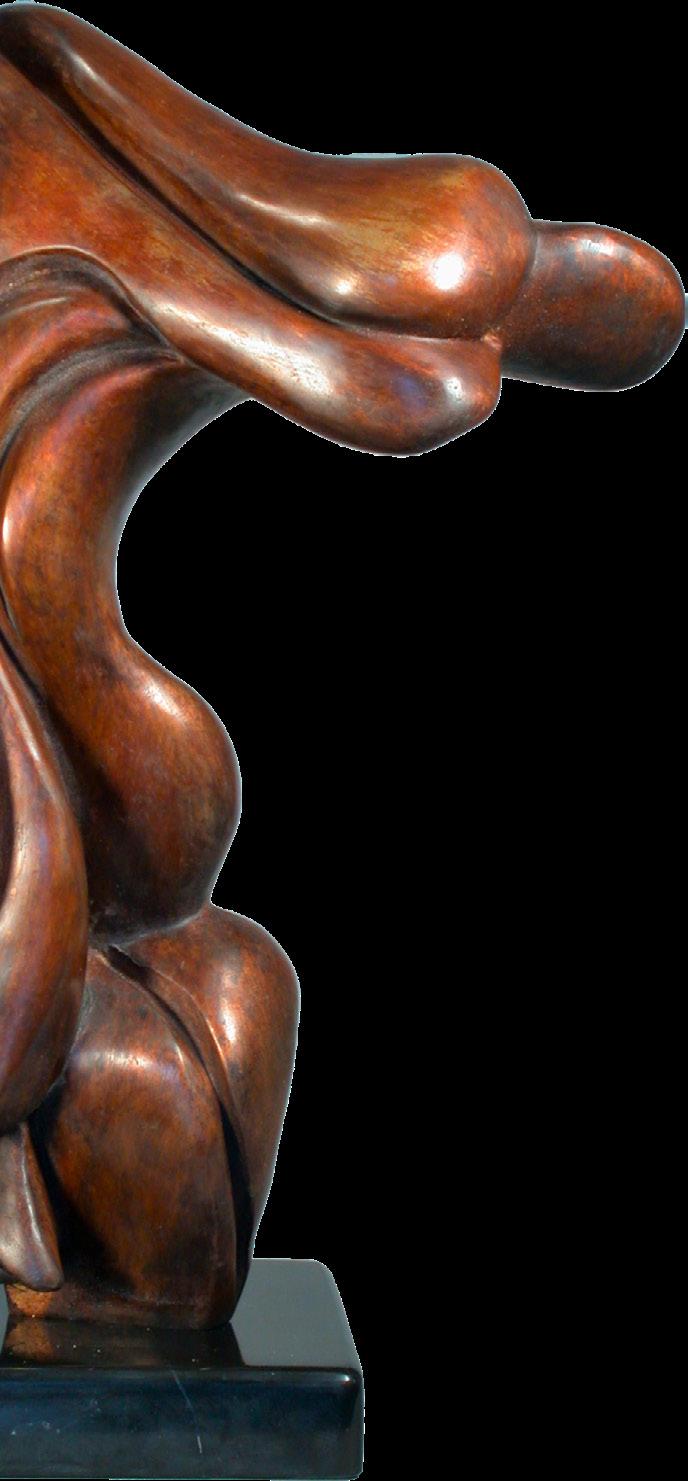
Jean Jacques Porret’s art communicates a universal language beyond borders and cultures. It focuses on fundamental emotions and ideas that unite us as human beings. Doing so bridges the gap between individuals, creating a sense of connection and understanding. Whether exploring the complexity of the human experience or capturing the beauty of a fleeting moment, Porret’s art is truly expressive in every sense of the word.
CAN YOU DESCRIBE YOUR ARTISTIC STYLE?
“To categorize my work as figurative or abstract is moot. Though figurative in practice, the work is never about the figure, but the emotions and ideas shared by the human race, expressed in the tension of the fluid curves and precarious balance. Though abstract, the recognizable form and innate humanity within each piece are impossible to ignore. Over time my work has become more dramatic in its simplicity.”
WHAT IS YOUR CREATIVE PROCESS?
“Starting from a series of sketches, each out of my imagination creates an attractive, sensual, and pleasing image to the eyes. I create my own style, my own path out of my imagination. I then create the sculpture in clay, ensuring the three dimensions remain as visualized in the sketches. A new piece is never actually finished, as other items such as patina, color, base material, and size will need to be considered, which is typically taking place after the molding, wax, and casting are completed.”
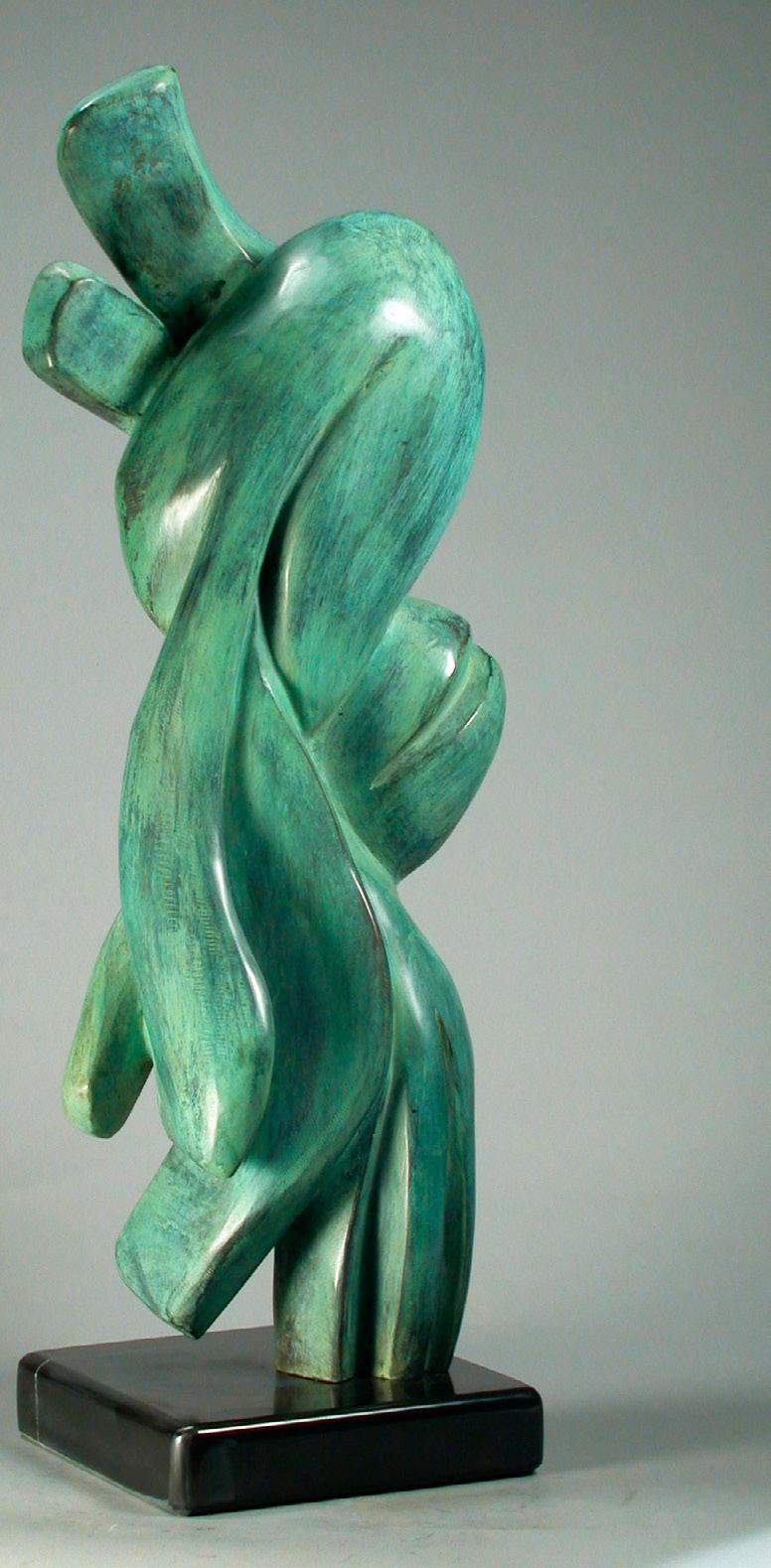
“Promiscuous”
HOW AND WHEN DID YOU DISCOVER YOU WANTED TO BE AN ARTIST?
“I started to carve and work with wood at a very young age. In the early days, my primary source of knowledge was sculptors interested enough to answer my questions. I visited the studios of some of the most famous sculptors, such as Pomodoro, Chilida, Ramseyer, Etrog, Henry Moore, and others. I was drawn to and learned the technique of bronze and lost wax casting “because it is the most demanding material which is responsive and sweet to the touch.” Lost wax is a slow multi-step process that has endured only because of the results.
One can not learn to be an Artist or a creator. That’s something one is born with. Many people are trying to be an artist, but they lack that crazy item called being creative, which is related to “IMAGINATION.”
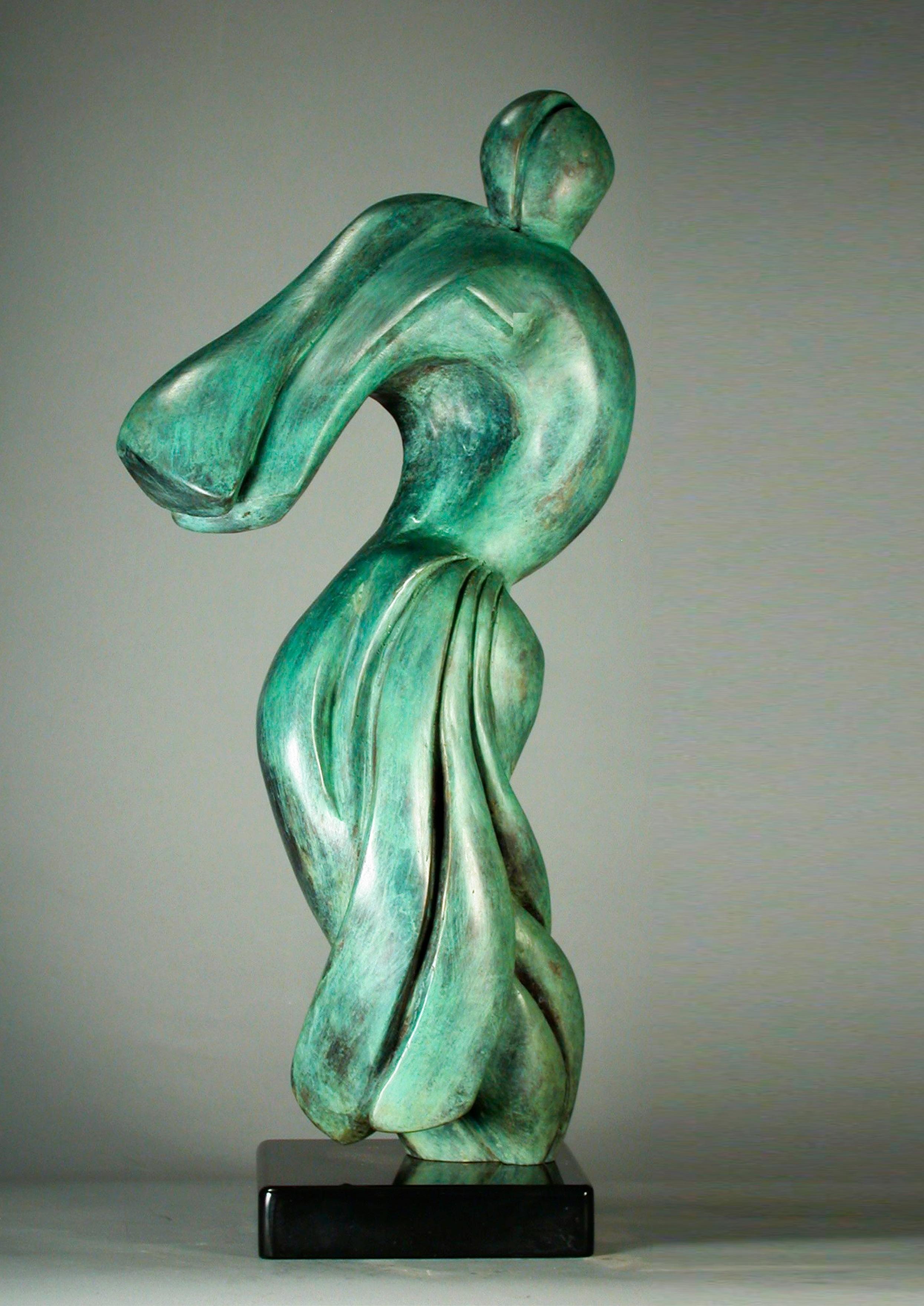
WHAT MESSAGE DOES YOUR WORK TRANSMIT TO YOUR AUDIENCE?
“Everything in life is inspiration, the sun rising over the horizon, a storm over the lake, etc. What is different, in comparison, is the new wave of electronics, smartphones, and all these, which people are getting hooked to today.
People no longer look at the beauty of things, and primary inspiration is getting lost. As an artist, I am creating sensual, attractive, and pleasing 3-D sculptures, which people don’t need to wonder what it is, what it looks like, or what it is supposed to be, but just enjoy and be inspired.”
HAS ANY PART OF YOUR STORY INFLUENCED WHAT YOU DO NOW?
“Everything in life is inspiration, the sun rising over the horizon, a storm over the lake, etc. What is different, in comparison, is the new wave of electronics, smartphones, and all these, which people are getting hooked to today.
People no longer look at the beauty of things, and primary inspiration is getting lost. As an artist, I am creating sensual, attractive, and pleasing 3-D sculptures, which people don’t need to wonder what it is, what it looks like, or what it is supposed to be, but just enjoy and be inspired.
There are so many artworks that are sensual and pleasing to the eye, even to the touch, artworks that one wants to be able to live with, such as H Moore, F Leger, Giacometti, Etrog, Ramseyer, Miro, Pomodoro, and even today’s sculptors as T Crag, F Benton, Chiilida, Botero, etc.”
